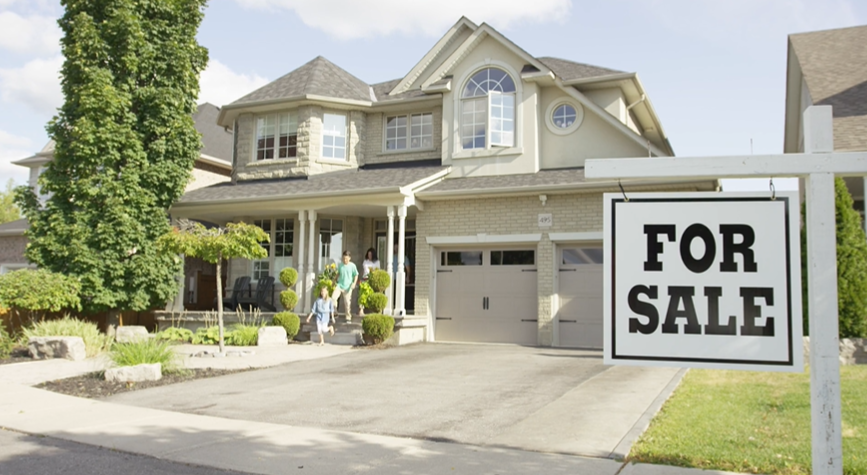10 Mistakes People Make When Selling a House
You’ve probably heard of buyer’s remorse when house hunting. You could make a mistake and purchase a house that’s too expensive, too far, too small, or too big. But it’s not just home buyers that can stumble. You can also make mistakes when selling a house.
Reasons Why Home Sellers Make Mistakes
The same reasons home sellers try not to make mistakes are often the reasons they make them. Most of the time, if you plan to sell your house, you dream of a quick sale, a top-dollar offer, or maybe even a bidding war. You plan to be strategic, careful, cunning, smart, and anything else to achieve these goals.
You limit how many repairs you make or the effort you put into staging to cut costs. Some overly-optimistic sellers even try to go solo, instead of working with an experienced real estate agent.
In some cases, you try to speed up the process because you’re facing a deadline. For example, a job relocation, a new school district, expecting a baby or financial changes can put pressure on you to move quickly. But when you rush (or panic), mistakes are more likely to happen.
Don’t Make These Mistakes When Selling Your Home
Plenty of mistakes are possible when you’re selling a house. Ultimately, if you skip steps, cut corners, or take lots of shortcuts seeking a desirable outcome, you’ll fail. Instead of the successful deal you hoped for, you end up with the opposite. It could be a much lower price, months or more on the market, or too much stress to handle.
Therefore, if you’re about to sell your house, or are thinking about it, keep reading. Check out these common mistakes home sellers make so you can avoid them in your future home-selling adventures.
1. Being Unrealistic About Your Home’s Fair-Market Value
Everyone thinks their home is worth top dollar. But the reality is your house is worth what people are willing to pay for it. And most of the time, people aren’t going to pay substantially more for your home if comparable homes in the area are selling for less.
An agent looks at the current market, available homes, current selling prices, and other factors to determine a competitive list price for your home. It’s in your best interest to be realistic about your home’s value, so you don’t price it too high.
An overpriced home tends to sit longer on the market, eventually leading to a price reduction. Price reductions and no movement for long lengths of time tend to be big red flags to buyers.
2. Not Hiring an Agent
Understandably, you want to make as much money as possible when you sell your home. But skipping an agent isn’t the way to do it. Sure, the idea of keeping that 6% in your pocket is tempting.
But it often isn’t worth the extra headaches and stress, the time it takes to sell, or trying to understand the paperwork. Plus, an agent will likely be able to get you a higher offer, so you wouldn’t be saving as much as you think.
3. Forgetting About the Costs to Sell
Most people know about the added costs when you purchase a home. But you also incur added costs when you sell a house. Sellers pay the agent’s commission (usually 6% of the sales price), closing costs (about 3% of the sales price), and possibly dish out money to prepare the home.
Repair costs, staging fees, and home inspections are all potential additional costs that sellers face. Not to mention the costs you’ll have when you rent or buy your new place, especially if you’re moving a long distance.
4. Hiding Problems with the House
Don’t try to hide problems with the house to get a better price or faster sale. It’s dishonest and in many cases illegal. For many issues, sellers are obligated to disclose any known problems with the property. Therefore, don’t cover up issues or hide them from buyers or your agent.
5. Taking Things Personally
You think your house is perfect in every way. However, the odds are good that many buyers will find faults with it. Don’t take it personally. If you do, emotions get in the way and cloud your judgment.
Don’t turn down a buyer because they offended your grandma’s avocado countertops or peony wallpaper. Keep the big picture in mind.
6. Believing Your House Is Perfect Just the Way It Is
Another downfall of believing your home is perfect is not staging it properly for showings. You’re used to your home’s existing setup, which makes you turn a blind eye to things others find glaringly unappealing or nonfunctional. It’s worth the minimal costs to stage your home and make it appealing to a larger pool of buyers.
7. Underestimating the Power of Photos
Snapping pictures of your house with a cell phone is not the way to capture engaging, effective real estate photos. Even an excellent camera in the hands of an inexperienced person won’t do the job justice. Make sure your agent uses a real estate photographer or has experience in that area if they plan to take the pictures.
8. Failing to Keep the House Clean
Your agent will do most of the work when it comes to selling your home, but you have responsibilities, too. A big one is to keep your home in good shape and ready for showings.
Deep clean your home before listing it, and keep it clean while it’s on the market. You never know when a last-minute showing might pop up, and you want your house ready to shine.
9. Limiting Your Buyer Pool
Keeping too many personal items in your home, like family photos and collectibles, makes it hard for buyers to envision living there. Too much clutter also gets in the way, causing buyers to question if your home has enough space or storage.
Overly trendy design choices, funky paint colors, and unique elements also limit the buyer pool. It’s important when you’re selling to pare down the clutter and personal touches to give your home mass appeal.
10. Staying Home During Showings
If your agent tells you there’s a showing, get out of the house. Take a long walk, grab a coffee, meet a friend, go anywhere but your home. When sellers stay at home during a showing, it tends to make buyers uncomfortable, and they don’t get a real sense of what the home is like.
Instead, they worry about offending you, or they don’t open closets and cabinets like they would if you weren’t there. After the showing, they may feel like they didn’t really see the whole house. Or, they didn’t get to see it’s full potential, and move on to the next one on their list.

 Facebook
Facebook
 X
X
 Pinterest
Pinterest
 Copy Link
Copy Link






